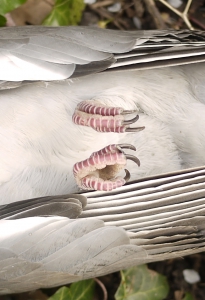Here is yet another gratuitous book report.
The Lost German Slave Girl. The Extraordinary True Story of Sally Miller and Her Fight for Freedom in Old New Orleans, by John Bailey, Atlantic Monthly Press 2003
This book was a present from my friend and fellow-translator Karen in Denver (thanks, Karen!). I read it quite a few weeks ago, so my report is rather vague now.
John Bailey is an Australian lawyer who has now turned to writing, and he discovered this story when he was researching the details of law relating to slavery in Louisiana. Sally Miller was the ‘lost German slave girl’, who won a case freeing her from slavery because a person who was Caucasian could not be a slave. It’s a fascinating story and it throws some light on the situation of slaves who could not be freed from slavery. There’s also a fair amount about the circumstances in which the Müller family from the Alsace emigrated to the USA, following years of pillaging by French troops, bad harvests and ice in summer (apparently resulting from volcanic eruptions in the West Indies, the Philippines and Indonesia from 1813-1816 – so tonight I will be watching the arte documentary on ‘The year without a summer’).
From an interview with John Bailey:
My plans unraveled, when one day, in the quiet corner of a law library on a university campus in Louisiana, as I struggled to bring some semblance of order to my unruly and ever expanding manuscript, I opened a volume of the Louisiana law reports for 1845. There I met Sally Miller, the Lost German Slave Girl. I was immediately enthralled by her story. By the end of the day, I had shoved my notes on lawyers, judges and politicians into my bag, and opening a fresh page in my diary, had began to jot down ideas for an entirely different project – this one, on the saga of Sally Miller’s bid for freedom.
One feature of the book is that while it cloaks the story in mystery – the witnesses in the trial are obviously long dead – at the same time it often knows exactly what the weather was like or what the main characters were thinking. This is part of the genre ‘bringing history to life’, I think. For a long time I was convinced that I was never going to know anything more about the truth or falsity of the story, but in fact more information was revealed at the end, which made the end of the book more satisfying than I had expected.
A bit of research on the Internet revealed that the story has been told before. Curiously, there is a 2007 American book on the subject, which looks similar to Bailey’s: The two lives of Sally Miller: a Case of Mistaken Racial Identity in Antebellum New Orleans, by Carol Wilson. You can read quite a bit of this on Google Books.


